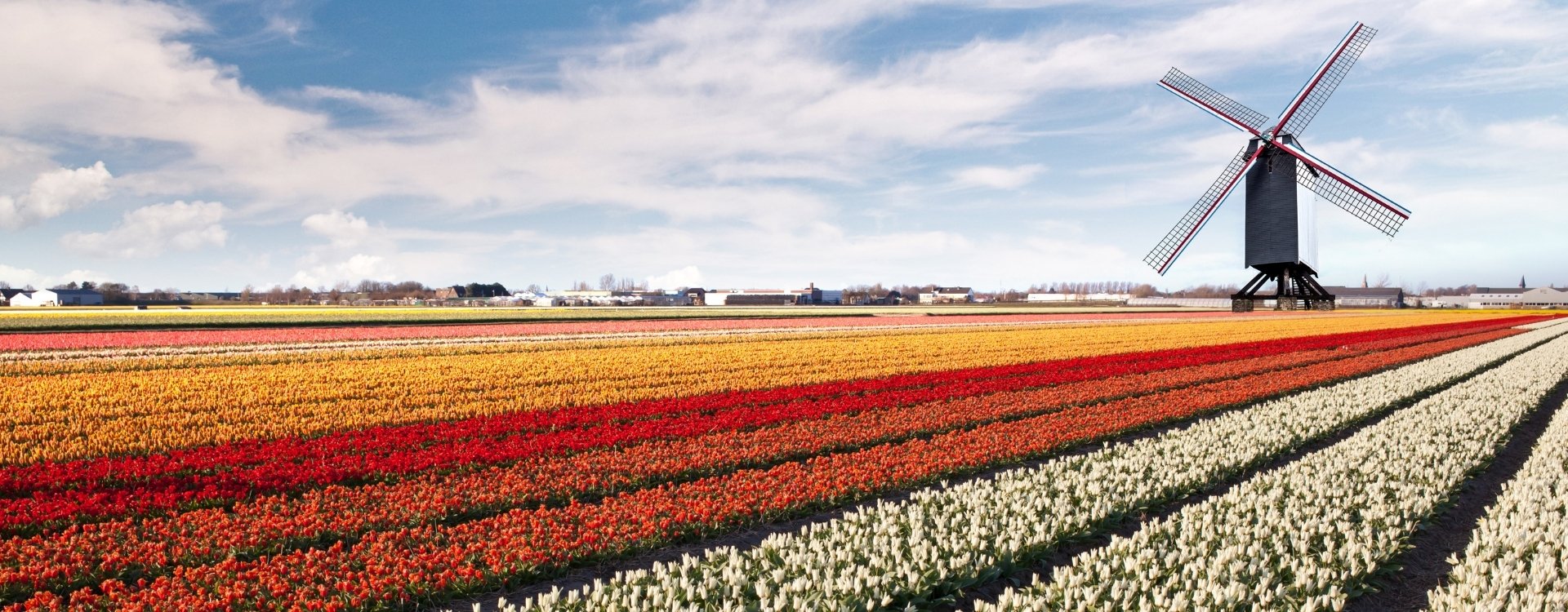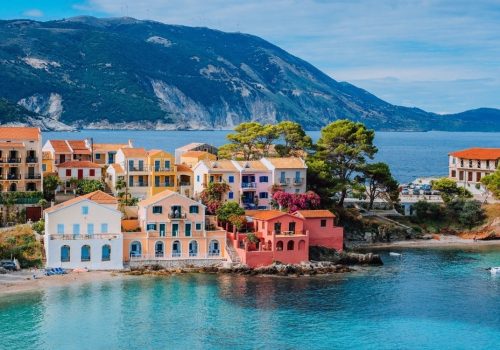Bo og jobbe i Nederland
The Netherlands, often referred to as Holland, is a country celebrated for its progressive policies, rich history, and picturesque landscapes filled with canals, windmills, and tulip fields. As one of Europe’s most dynamic nations, the Netherlands offers a high standard of living, excellent work-life balance, and diverse job opportunities. This guide provides a detailed overview of living and working in the Netherlands, covering employment opportunities, accommodation, cost of living, and cultural insights to help you make the most of your experience in this welcoming and innovative country.
Siste stillinger i Nederland
Vi har ingen jobb som samsvarer med dette søket. Nedenfor finner du et utvalg av våre mest populære ledige stillinger!
- Aktivitets Leder, Hotell & Restaurant, Turisme
- Bulgaria, Egypt, Hellas, Italia, Kroatia, Spania, Tyrkia
- Hotell & Restaurant, Turisme
- Hellas, Kypros, Spania
Working in the Netherlands
Working Conditions in the Netherlands
The Netherlands is known for its emphasis on work-life balance. The standard workweek is typically 36 to 40 hours, with many employers offering part-time options. Employees enjoy at least 20 days of paid annual leave, and most companies provide additional vacation days, bringing the total to 25 or more. Dutch labor law ensures fair working conditions, including regulated working hours and generous parental leave policies. Employees are entitled to at least 16 weeks of maternity leave, and new fathers receive paid paternity leave of up to six weeks.
The Dutch culture of «gezelligheid» (coziness) often extends to workplaces, where collaboration and social connections are valued. While English is widely spoken, particularly in multinational companies, learning Dutch is beneficial for integration and career growth.
Job Opportunities in the Netherlands
The Netherlands boasts a strong and diverse economy, with key industries including technology, finance, agriculture, logistics, healthcare, and education. Major cities such as Amsterdam, Rotterdam, The Hague, and Eindhoven are economic hubs offering a wealth of opportunities.
Technology and Start-ups: As one of Europe’s tech capitals, the Netherlands is home to numerous start-ups and global companies like ASML, Philips, and Booking.com. Positions in software development, AI, cybersecurity, and digital marketing are in high demand.
Finance and Banking: The Netherlands is a financial hub, with institutions like ING, ABN AMRO, and Rabobank offering roles in investment banking, fintech, and risk management.
Agriculture and Sustainability: Known for its innovation in agriculture, the Netherlands is a leader in sustainable farming and horticulture, creating opportunities in research, agribusiness, and engineering.
Logistics and Trade: With Rotterdam hosting Europe’s largest port, logistics, supply chain management, and international trade are thriving industries.
Healthcare and Education: The Dutch healthcare system consistently ranks among the best globally, creating demand for medical professionals and researchers. International schools and universities offer teaching and administrative roles for qualified expats.
Networking is crucial for job hunting in the Netherlands. Platforms like LinkedIn, Glassdoor, and local job boards such as Werk.nl and Indeed.nl are valuable resources. Recruitment agencies specializing in expat placements, such as Undutchables and Adams Multilingual Recruitment, can also assist.
Salaries in the Netherlands
Salaries in the Netherlands vary by industry, role, and location. The average annual gross salary is approximately €36,000. Here’s an overview of common salary ranges:
- Technology and IT: €50,000 to €80,000 annually
- Finance and consulting: €45,000 to €90,000
- Healthcare professionals: €35,000 to €70,000
- Teaching and education: €30,000 to €50,000
- Hospitality and retail: €25,000 to €35,000
While salaries may seem moderate compared to other European countries, the Netherlands offers excellent social benefits and a high quality of life.
Income Tax in the Netherlands
The Netherlands has a progressive income tax system with rates ranging from 37.07% to 49.50%, depending on income levels. Expats may qualify for the 30% ruling, a tax exemption for highly skilled migrants, allowing them to receive up to 30% of their gross salary tax-free for five years. This benefit significantly boosts take-home pay and makes the Netherlands an attractive destination for international talent.
Social security contributions are also deducted from salaries and cover healthcare, pensions, and unemployment benefits.
Working Culture in the Netherlands
The Dutch working culture emphasizes direct communication, equality, and collaboration. Offices are typically informal, with flat hierarchies that encourage employees to voice their opinions. Meetings are structured and time-efficient, reflecting the Dutch preference for punctuality and practicality.
Work-life balance is highly valued, with many employees leaving the office by 5:30 pm. Socializing with colleagues is common, often through Friday drinks («borrels») or team-building activities. The concept of «Doe maar gewoon» (just act normal) underscores the Dutch approach to work and life—focused on moderation, humility, and mutual respect.

Living in the Netherlands
Benefits of Living and Working in the Netherlands
Living in the Netherlands offers a unique blend of urban sophistication and natural beauty. The country is consistently ranked as one of the happiest in the world, thanks to its excellent public services, inclusive society, and focus on sustainability.
The Netherlands is known for its efficient public transport system, extensive cycling infrastructure, and high-quality healthcare. Its central location in Europe makes it easy to travel to neighboring countries like Germany, Belgium, and France.
Accommodation in the Netherlands
Finding accommodation in the Netherlands can be competitive, particularly in major cities. Housing options range from apartments and shared flats to detached houses in suburban areas. Rent prices vary significantly depending on location:
- Amsterdam: €1,500 to €2,500 per month for a one-bedroom apartment
- Rotterdam: €1,000 to €1,800
- The Hague: €1,200 to €2,000
- Eindhoven: €900 to €1,500
Websites like Funda.nl, Pararius, and Kamernet are popular for finding rentals, while real estate agents can assist with navigating the housing market. Be prepared to provide proof of income and pay a deposit equivalent to one or two months’ rent.
Cost of Living in the Netherlands
The cost of living in the Netherlands is moderate compared to other Western European countries. Monthly expenses for a single person typically range from €1,500 to €2,500, excluding rent. Key expenses include:
- Groceries: €250 to €400 per month
- Dining out: €15 to €30 per meal at mid-range restaurants
- Public transport: €100 to €150 monthly pass
- Utilities: €150 to €250 per month
While Amsterdam is the most expensive city, cities like Rotterdam, Utrecht, and Eindhoven offer a more affordable lifestyle.
Public Transport in the Netherlands
The Netherlands has one of Europe’s most efficient public transport systems, including trains, trams, buses, and ferries. The OV-chipkaart allows seamless travel across all modes of transport. Monthly transport passes cost around €100 to €150, depending on the city and travel zones.
Cycling is integral to Dutch life, with extensive bike lanes and affordable bike-sharing schemes like OV-fiets.
Eating in the Netherlands
Dutch cuisine is hearty and simple, with staples like bread, cheese, and herring. Local specialties include stroopwafels, bitterballen, and poffertjes.
Dining out is popular, with a wide range of international cuisines available. Farmers’ markets, such as the Albert Cuyp Market in Amsterdam, offer fresh produce and artisanal goods. Groceries are affordable, especially at chains like Albert Heijn, Jumbo, and Lidl.
Places to Go Running or Working Out
The Netherlands’ flat terrain makes it ideal for running, cycling, and outdoor activities. Popular spots include:
- Vondelpark (Amsterdam): A scenic park with running paths and open spaces
- Kralingse Bos (Rotterdam): Ideal for jogging and picnicking
- Utrechtse Heuvelrug National Park: Perfect for hiking and trail running
Fitness centers like Basic-Fit and TrainMore offer affordable gym memberships starting at €20 per month.
What to Do on Weekends
The Netherlands offers endless activities for leisure and exploration. Visit historical cities like Haarlem or Maastricht, explore the windmills of Kinderdijk, or take a boat ride through the canals of Amsterdam.
Nature enthusiasts can enjoy the tulip fields in Lisse, the beaches of Zandvoort, or the national parks like Hoge Veluwe. Seasonal events, such as King’s Day and Sinterklaas celebrations, showcase Dutch culture at its best.
Weather in the Netherlands
The Netherlands has a temperate maritime climate with mild summers and cool winters. Summer temperatures average 17°C to 22°C, while winters range from 0°C to 5°C. Rain is frequent, so keep an umbrella handy.








